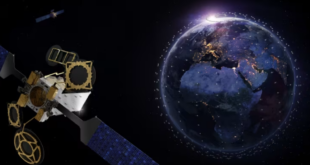 Berlin, 22 September 2020. – The UK Space Agency is set to announce the withdrawal from British plans to develop an own, sovereign satellite navigation program and mulls rejoining the European Union’s Galileo system, UK press reported.
Berlin, 22 September 2020. – The UK Space Agency is set to announce the withdrawal from British plans to develop an own, sovereign satellite navigation program and mulls rejoining the European Union’s Galileo system, UK press reported.
“The Government has formally scrapped Theresa May’s plan for a British version of the GPS satellite navigation programme, leading to parts of Whitehall now pushing for the UK to rejoin the EU’s Galileo system,” The Telegraph reported on 19 September.
“The UK Space Agency is expected to announce in the coming days that it has terminated the (…) project,” the newspaper said.
The Brexit had triggered intense discussions about Britain’s access to the European Galileo system especially for military applications. Government officials confirmed to The Telegraph that the “UK will not participate in the EU’s Galileo programme”.
In a surprising move together with Indian Bharti Global in summer, the British Government, through its National Security Strategic Investment Fund (NSSIF), won a bid to rescue London-based OneWeb which had entered bankruptcy in spring.
OneWeb’s Low Earth Orbit (LEO) constellation offers satellite broadband connectivity. Industry experts questioned its capability to shift and upgrade it for satellite navigation. Galileo satellites operate in an altitude of 23,000 kilometers.





